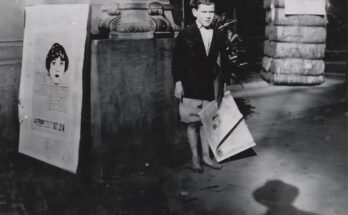1. Betje Olivier-van Thijn was born on May 23, 1895, in Amsterdam, the capital city of the Netherlands. Raised in a Jewish family, she grew up in a vibrant urban setting that was home to one of the most prominent Jewish communities in Europe. Amsterdam’s Jewish population had deep roots and contributed richly to the city’s cultural and economic life, and Betje was part of this dynamic world.
2. She lived through a period of great change in the early 20th century, including the impact of World War I, the interwar years, and the rise of political tensions across Europe. During these years, Betje married Mozes van Thijn, and together they built a life rooted in family and tradition. They were later blessed with two daughters, Anna and Jeannette, with whom they shared their love, values, and faith.
3. The van Thijn family lived a relatively peaceful life until the Nazi occupation of the Netherlands in May 1940. Life for Jews in Amsterdam and across the country rapidly deteriorated under the repressive anti-Jewish laws enacted by the Nazi regime. These laws systematically stripped Jews of their rights, jobs, and freedom, creating an atmosphere of fear and uncertainty.
4. By 1942, the Nazi plan to exterminate European Jews had reached the Netherlands. Deportations began in earnest that summer. The van Thijn family, like thousands of others, was targeted. In September 1942, Betje, her husband Mozes, and their daughters Anna and Jeannette were forcibly deported from their home in Amsterdam.
5. They were transported to Auschwitz, the largest and most infamous of the Nazi concentration and extermination camps, located in German-occupied Poland. The journey itself was grueling, carried out in overcrowded and inhumane conditions, typically in cattle cars with minimal food, water, or sanitation.
6. Upon arrival at Auschwitz, the family was subjected to the Nazis’ brutal selection process. Most families with young children were sent directly to the gas chambers, deemed unfit for forced labor. Betje, Mozes, Anna, and Jeannette were among those who were murdered almost immediately upon their arrival.
7. They died in one of Auschwitz’s gas chambers, a method of mass murder designed to kill large numbers of people quickly and efficiently. Their deaths were part of the systematic genocide of six million Jews by the Nazi regime, an atrocity now remembered as the Holocaust.
8. The story of Betje Olivier-van Thijn and her family is one of millions of personal tragedies during the Holocaust. Their memory, like that of so many others, serves as a powerful reminder of the human cost of hatred, racism, and totalitarianism. Remembering them helps ensure that the world never forgets the horrors of the Holocaust and the importance of standing against persecution in all its forms.


